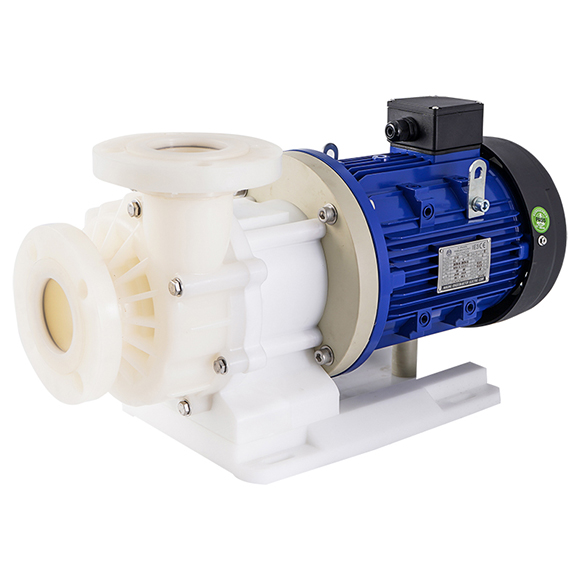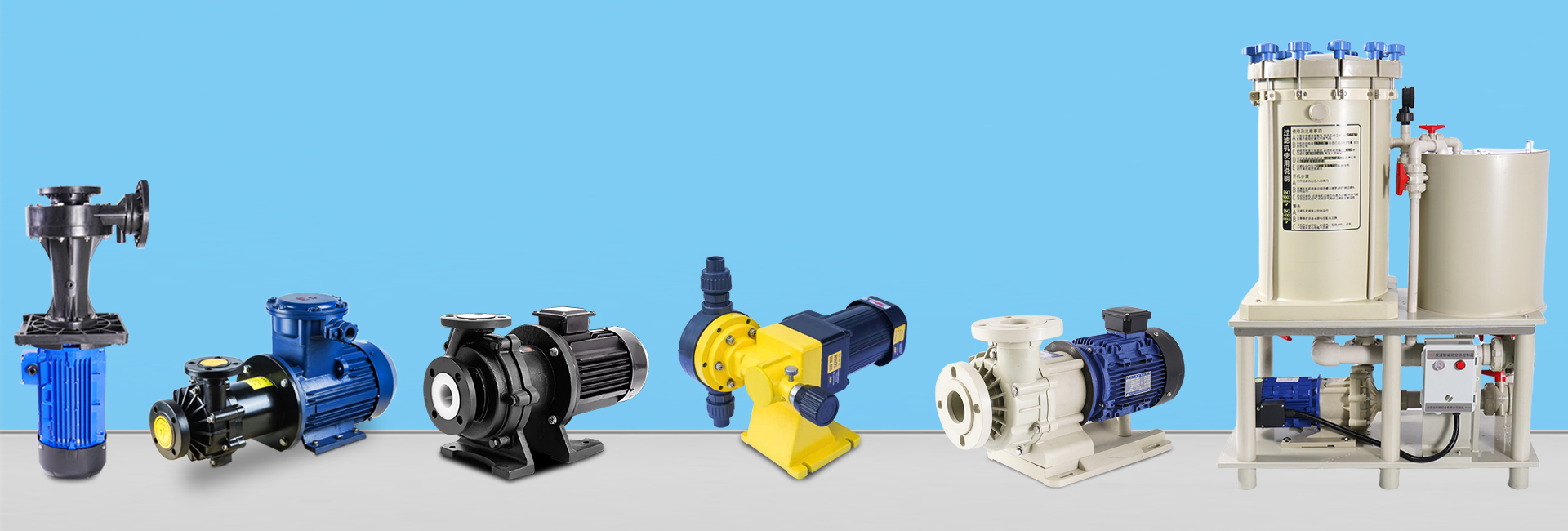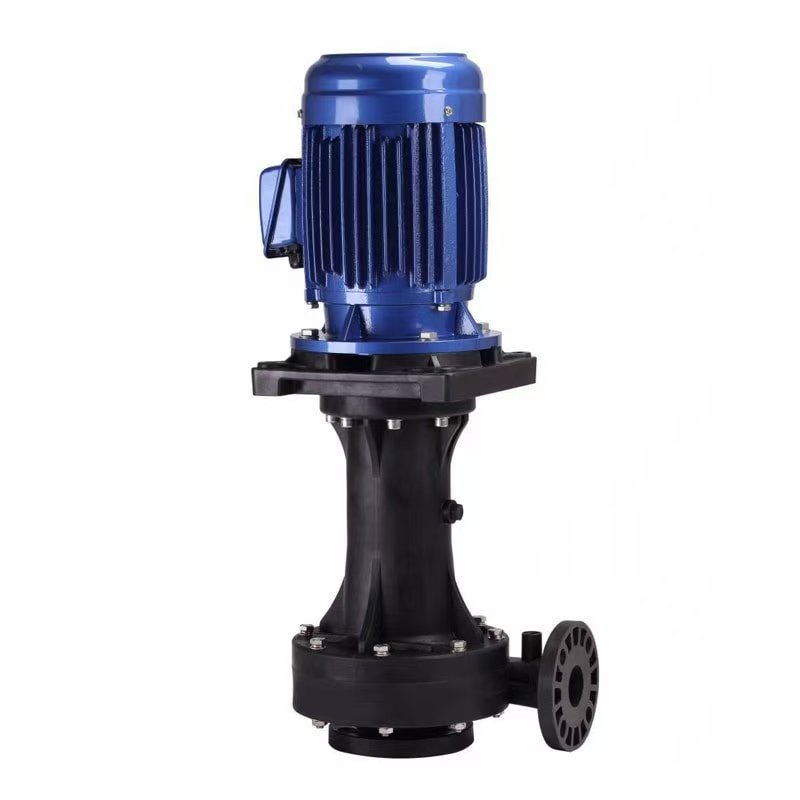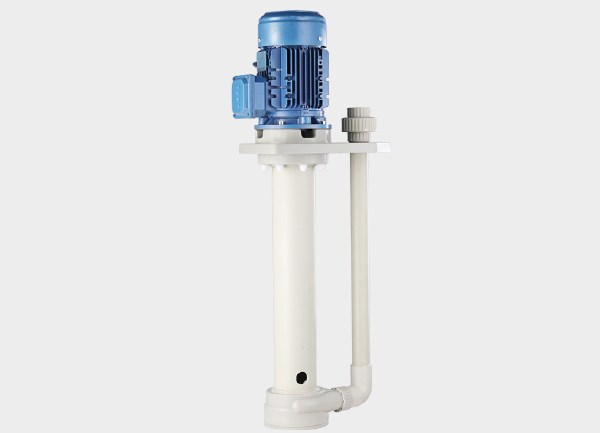When selecting a chemical pump for transporting hydrochloric acid (HCl), material choice is crucial due to the corrosive and chemically active nature of HCl. Choosing the right material ensures the durability, stability, and safety of the pump. Below are common materials used for pumps transporting hydrochloric acid:

1. Stainless Steel (e.g., 304, 316, 316L)
Advantages: Stainless steel offers excellent corrosion resistance, especially 316L stainless steel, which provides better protection against hydrochloric acid.
Best Use: Suitable for transporting lower concentrations of hydrochloric acid.
Considerations: While 316L stainless steel is highly resistant to corrosion, it may still experience wear over time, especially in higher concentrations of hydrochloric acid.
2. Fluoroplastics (e.g., PTFE – Polytetrafluoroethylene)
Advantages: PTFE is highly resistant to corrosion and virtually unaffected by hydrochloric acid, making it one of the best materials for aggressive chemicals.
Best Use: Ideal for high-concentration hydrochloric acid transport, particularly in highly corrosive environments.
Considerations: PTFE is relatively expensive and has lower mechanical strength, so it’s often used in combination with other materials (e.g., reinforced fluoroplastics or metal casings).
3. High-Density Polyethylene (HDPE)
Advantages: HDPE offers good resistance to hydrochloric acid and is chemically stable, especially for environments with moderate temperatures.
Best Use: Suitable for low to medium concentrations of hydrochloric acid.
Considerations: Its corrosion resistance may decrease at higher concentrations or elevated temperatures.
4. Rubber Lining
Advantages: Rubber linings are effective in protecting against hydrochloric acid corrosion, especially for lower to medium concentrations of the acid.
Best Use: Often used for larger chemical pumps where abrasion and corrosion resistance are key concerns.
Considerations: Rubber linings have limited temperature tolerance and may degrade over time due to wear.
5. Ceramics
Advantages: Ceramic materials offer excellent corrosion resistance, especially against high-concentration hydrochloric acid, and can withstand high temperatures.
Best Use: Ideal for high-concentration and specialty applications where extreme chemical conditions exist.
Considerations: Ceramic materials can be brittle and expensive, making them less suitable for applications where mechanical shock is common.
6. Titanium Alloys
Advantages: Titanium alloys provide outstanding corrosion resistance, particularly in highly acidic environments. Titanium pumps perform well in extreme conditions, providing long-lasting service.
Best Use: Ideal for high-concentration, high-temperature hydrochloric acid transport.
Considerations: Titanium is relatively expensive, making it a costly material choice.
7. Carbon Steel with Linings (e.g., Epoxy Resin Coating)
Advantages: Carbon steel pumps with a protective lining (e.g., epoxy resin) offer a cost-effective solution for hydrochloric acid transport, providing a degree of corrosion resistance.
Best Use: Suitable for transporting low-concentration hydrochloric acid.
Considerations: The protective coating may degrade over time, especially under high temperatures or concentrations, requiring regular maintenance.
Recommendations for Material Selection:
Low Concentration Hydrochloric Acid: Stainless steel (316L) or high-density polyethylene (HDPE) are commonly used for these applications.
Medium Concentration Hydrochloric Acid: Fluoroplastic-lined pumps and rubber-lined pumps are good options.
High Concentration Hydrochloric Acid: PTFE-lined pumps and titanium alloy pumps provide superior corrosion resistance.
Extreme Conditions: For the most aggressive environments, ceramic or titanium alloy pumps are the best choice.
Other factors such as pump flow rate, pressure, and operational environment should also be considered when choosing the most suitable material for hydrochloric acid transport.







